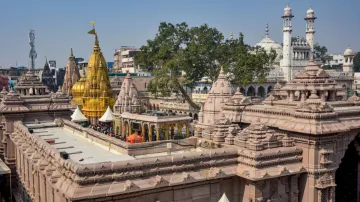In a significant development, the Varanasi court permitted Hindu devotees to worship within the confines of Gyanvapi mosque's sealed basement. The Vyasa family had been performing religious ceremonies in the basement until 1993, and the recent court decision reinstates this tradition. The court issued directives for the initiation of arrangements to implement the decision within a week. The Vyasa family will now be allowed to conduct religious rituals in the sealed basement, bringing an end to a longstanding legal battle.
Hindu devotees are authorised to offer prayers inside the sealed basement of Gyanvapi mosque, known as 'Vyas Ka Tekhana,' according to the recent verdict from Varanasi court. The court instructed the district administration to facilitate the arrangements for Hindu worship within the next seven days.
Advocate's statement
Advocate Vishnu Shankar Jain, representing the Hindu side, confirmed the decision, stating, "The Hindu side is allowed to offer prayers at 'Vyas Ka Tekhana'. The district administration will have to make arrangements within 7 days. Everyone will now have the right to perform puja. The District Administration has been given seven days to make necessary arrangements."
Religious inclusivity
The ruling emphasises the principle of religious inclusivity, allowing both communities to practice their faith in a shared space.
Initiation of worship
The court directed the district administration to facilitate rituals involving the puja, bhog, and worship of idols within the contested cellar space, raising concerns about the historical and religious significance of Gyanvapi.
Legal response
An appeal against the order is anticipated, with the Anjuman Intezamiya Masjid Committee expressing dissatisfaction and citing a 1937 judgment affirming Gyanvapi as mosque property. The legal battle is expected to escalate as both sides prepare to approach the high court.
Muslim opposition
The Muslim side voices strong objections, emphasising the historical status of Gyanvapi as mosque property. Lawyer Akhlaq Ahmad mentioned plans to challenge the order in the High Court, asserting the oversight of the 1937 ruling.
Tensions escalate
The order reignited tensions surrounding the Gyanvapi complex, blending religious sentiments with legal complexities and setting the stage for a potential protracted legal battle over the revered site's ownership and usage.
